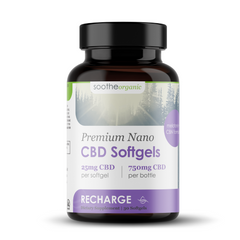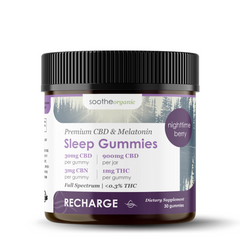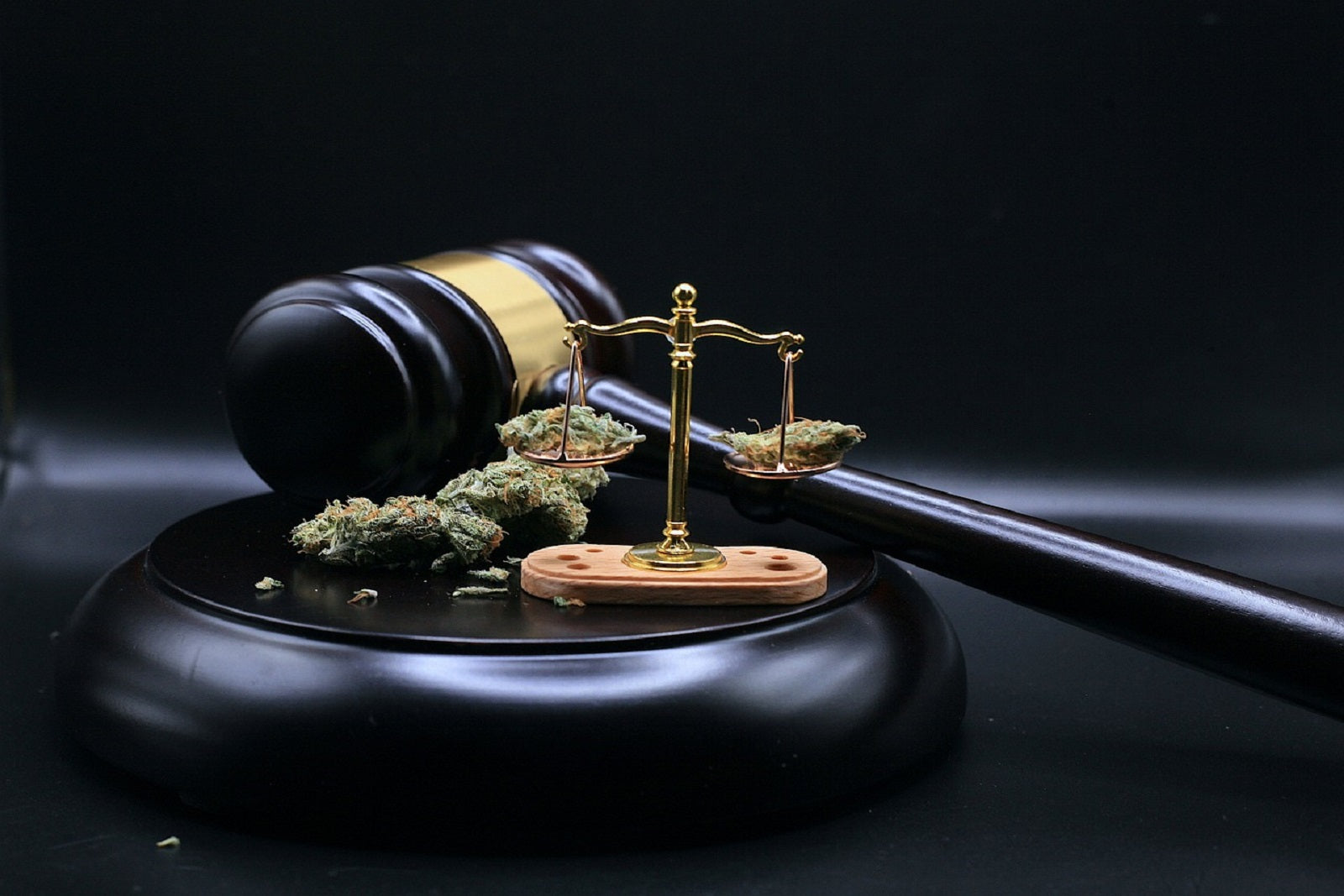Cannabidiol (CBD), a non-intoxicating compound derived from the cannabis plant, has surged in popularity due to its potential therapeutic benefits, including CBD for pain relief, CBD for joint pain and inflammation, and overall wellness support. As consumers flock to products like full spectrum CBD tincture and CBD oil softgels, understanding the legal framework and health benefits of CBD is critical for both users and businesses. At Soothe Organic, we’re committed to providing high-quality, USDA Organic CBD products while ensuring compliance with federal and state regulations. This comprehensive guide explores CBD’s benefits, legal landscape, and key considerations to empower you to make informed decisions.
What is CBD? Understanding Its Sources and Benefits
CBD is one of over 100 cannabinoids found in cannabis plants, primarily hemp and marijuana. Unlike delta-9-tetrahydrocannabinol (THC), the psychoactive compound in marijuana, CBD does not produce a "high." Instead, it’s celebrated for its potential therapeutic properties, backed by emerging scientific research.
Key Benefits of CBD
-
CBD for Pain Relief: Studies, such as a 2020 review in Frontiers in Pharmacology, suggest CBD may alleviate chronic pain by interacting with the endocannabinoid system, which regulates pain perception.
-
CBD for Joint Pain and Inflammation: Research, including a 2016 study in European Journal of Pain, indicates CBD’s anti-inflammatory properties may reduce joint pain and inflammation, benefiting conditions like arthritis.
-
Anxiety and Stress Reduction: A 2019 study in The Permanente Journal found CBD reduced anxiety in 79% of participants, promoting relaxation without sedation.
-
Sleep Support: Anecdotal evidence and preliminary studies, like a 2017 review in Current Psychiatry Reports, suggest CBD may improve sleep quality by addressing underlying issues like anxiety or pain.
-
Neuroprotection: The FDA-approved CBD drug Epidiolex treats epilepsy, and ongoing research explores CBD’s potential in neurodegenerative diseases, as noted in a 2021 study in Molecules.
Full Spectrum vs. Broad Spectrum CBD
-
Full Spectrum CBD Tincture: Contains all cannabinoids, terpenes, and trace amounts of THC (less than 0.3%), offering an "entourage effect" that may enhance therapeutic benefits. Ideal for those seeking comprehensive relief, such as CBD for joint pain and inflammation.
-
Broad Spectrum CBD: THC-free but retains other cannabinoids and terpenes, suitable for users avoiding THC while still benefiting from synergistic effects.
-
CBD Isolate: Pure CBD, ideal for targeted applications but lacks the entourage effect.
The source of CBD is critical. Hemp-derived CBD, with less than 0.3% THC, is federally legal, while marijuana-derived CBD remains restricted due to higher THC content. At Soothe Organic, our full spectrum CBD tincture and CBD oil softgels are crafted from USDA Organic hemp, ensuring quality and compliance.
The Legal Landscape of CBD in the United States
Navigating CBD’s legal status requires understanding federal and state regulations, which can differ significantly. The 2018 Farm Bill was a pivotal moment, but ongoing regulatory nuances demand attention.
Federal Regulations: The 2018 Farm Bill and Agency Oversight
The 2018 Farm Bill (Agriculture Improvement Act) revolutionized CBD’s legal status by:
-
Removing hemp (cannabis with ≤0.3% THC) and its derivatives, including CBD, from the Controlled Substances Act.
-
Legalizing hemp cultivation and interstate commerce under federal law.
-
Assigning regulatory oversight to three key agencies:
-
Food and Drug Administration (FDA): Regulates CBD in food, beverages, cosmetics, and dietary supplements. The FDA has approved Epidiolex but does not recognize CBD as a dietary supplement, issuing warnings for unsubstantiated health claims. Labeling must comply with FDA guidelines, including THC content and dosage instructions.
-
Drug Enforcement Administration (DEA): Post-2018, hemp-derived CBD is no longer a controlled substance, but marijuana-derived CBD remains Schedule I. The DEA focuses on THC content enforcement.
-
United States Department of Agriculture (USDA): Oversees hemp cultivation, requiring states to submit hemp production plans. USDA Organic certification, as seen in Soothe Organic’s products, ensures compliance with organic standards, prohibiting synthetic pesticides and GMOs.

Image Source: https://www.epidiolex.com/fda-approved-cbd
State-by-State Regulations: A Complex Patchwork
While federal law permits hemp-derived CBD, states have autonomy to impose stricter regulations. As of January 2023, CBD’s legality varies:
-
Fully Legal States (18): Alaska, Arizona, California, Colorado, Connecticut, District of Columbia, Illinois, Maine, Massachusetts, Michigan, Montana, Nevada, New Jersey, New York, Oregon, Vermont, Virginia, Washington. These states align with federal guidelines, allowing broad access to full spectrum CBD tinctureand CBD oil softgels.
-
Conditionally Legal States: States like Texas, Florida, and Georgia permit CBD under specific conditions, such as low THC content or medical prescriptions. For example, Texas allows hemp-derived CBD with ≤0.3% THC but restricts marijuana-derived products.
-
Restricted States: Idaho, Nebraska, and South Dakota maintain strict prohibitions or limited allowances, often banning CBD unless FDA-approved (e.g., Epidiolex).
State-specific rules may include:
-
Restrictions on CBD in food or beverages.
-
Labeling requirements, such as batch testing results or QR codes linking to lab reports.
-
Licensing for cultivation, manufacturing, or retail.
Consumers and businesses must research state laws to ensure compliance. For instance, Soothe Organic’s USDA Organic CBD products meet rigorous federal and state standards, ensuring accessibility nationwide.
Navigating CBD Business Challenges
Operating a CBD business involves overcoming legal and operational hurdles:
-
Licenses and Permits: Requirements vary by state, including retail, cultivation, manufacturing, or transportation licenses. For example, California mandates a Hemp Processor License for CBD production.
-
Compliance with FDA and State Laws: Businesses must avoid unverified health claims (e.g., “cures cancer”) and ensure accurate labeling. Soothe Organic’s CBD oil softgels include clear THC content and dosage guidelines.
-
Zoning Restrictions: Local ordinances may limit CBD retail to specific zones, impacting storefront operations.
-
Tax Implications: Federal tax code (Section 280E) restricts cannabis-related businesses from deducting standard expenses, increasing tax burdens.
-
Interstate Commerce: Varying state laws complicate shipping. Businesses must verify destination state regulations to avoid legal issues.

Image Source: https://worldpopulationreview.com/state-rankings/cbd-legal-state
Marketing and Labeling Best Practices
The FDA scrutinizes CBD marketing, issuing warnings for misleading claims. Best practices include:
Why Choose Soothe Organic?
Conclusion
Trusted Resources and Backlinks
These resources provide authoritative, relevant, and scientifically grounded information.






